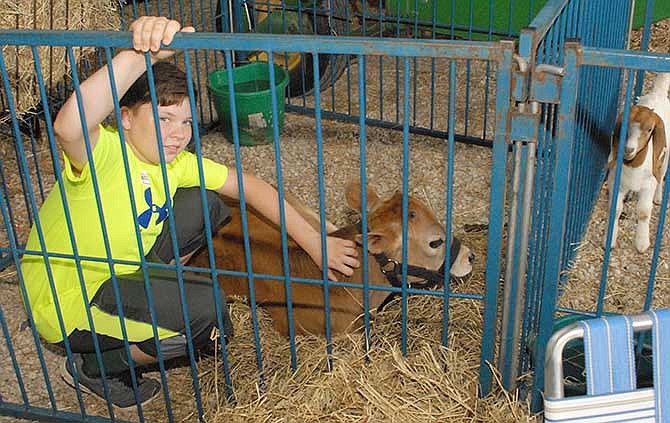A petting zoo and educational booths led the activities Saturday at the first-time Animal Welfare Hands-On Workshop at the Lincoln University George Washington Carver Farm.
Cattle, chickens, goats, pigs and sheep were available, 4-Hers provided demonstrations, and the university's agriculture club provided concessions.
The event is only the beginning of several projects the cooperative research program will share with the Mid-Missouri public during the next three years as part of a U.S. Department of Agriculture grant.
"With more of today's meat consumers being further removed from the farm and with the negative press associated with animal welfare and animal agriculture, it is becoming increasingly important for the animal agriculture industry to start educating the general public and tomorrow's consumers today," the grant summary said.
Animal products provide 68.5 percent of protein and 35.6 percent of the calories for the U. S. human diet.
Lincoln has titled the grant program Students Training Students: Educating Tomorrow's Consumers Today.
University students will become advocates for the animal agriculture industry by sharing the positive aspects of this field with third grade through high school students in Mid-Missouri schools.
The program seeks to improve awareness about the importance of the nutritional value of meat protein, the importance of proper methods to raise animals for food, and familiarity with small/large ruminants, swine and poultry animal production practices.
This spring, Lincoln students prepared three, age-specific, 40-minute presentations.
This fall, they hope to arrange visits to schools within 60 miles of Jefferson City, as well as in St. Louis and Kansas City.
Teachers will be asked to give a pre-test before the visit and then give the same as a post-test following Lincoln students' presentation.
Teachers also will be asked to fill out a demographic survey to aid Lincoln in understanding the distribution range of students in the classroom.
"This will allow the university to examine if earlier education can impact the students attitudes as they become future consumers," said Program Coordinator Kim Cash.

